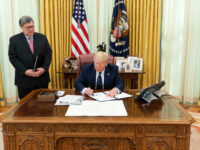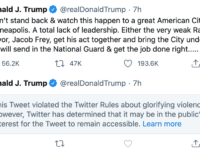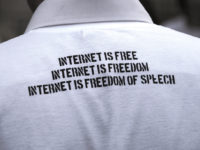The U.S. approach to Internet platform liability has been characterized as the single most important legal protection for free speech on the Internet. Over the past two decades, every major Internet service has turned to the rules to ensure that liability for third party content posted on their sites rests with the poster, not the site or service. Those rules have proven increasingly controversial, however, with mounting calls for the companies to take on greater responsibility for content posted on their sites. The issue captured international attention last month when U.S. President Donald Trump issued an Executive Order that heightens the pressure for change.
Eric Goldman is a Professor of Law at Santa Clara University School of Law in the Silicon Valley where he co-directs the High Tech Law Institute. He has written extensively about Internet liability and appeared before the US Congress to testify on the issue. He joins me on the podcast to discuss the history behind the U.S. approach, its impact, and the implications of the Trump Executive Order.









